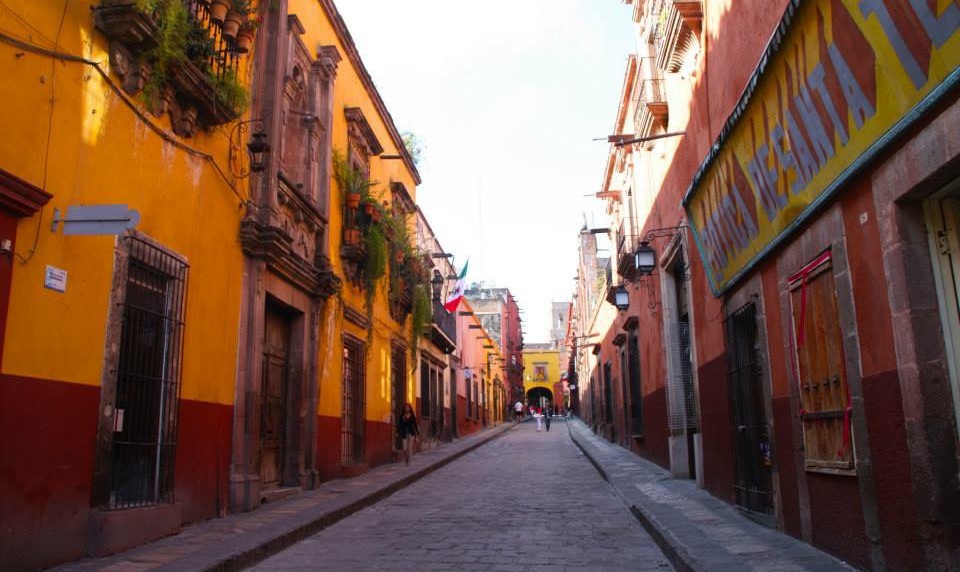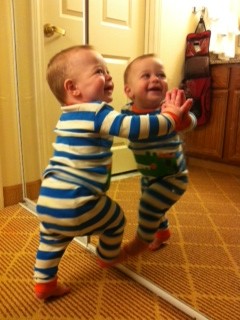I’ve always found it difficult to know what information about my life I should scatter out into the sea of the Internet. For some people — the ones who share that they’re hungry for a sandwich, and then that they went to get a sandwich, and then that the sandwich was so amazing — this isn’t a concern. If something is going on, they just blog or update their Facebook status about it. There’s a nice simplicity to that, and while some whine about having to drudge through the minutiae of other people’s lives in their Facebook feeds, I actually find it quite interesting. But that’s when it comes to other people. Me, I’m a bit more private than that. I like to think of my Internet presence as a highlights reel rather than a play-by-play. I try not to stick everything in — just the good stuff.
But there’s my dilemma. Life isn’t just about the good stuff; bad creeps in occasionally too. And how am I to handle that bad stuff online? I faced that question last March when my dad passed away, and I’m facing it again now. Not knowing how much I want to reveal, I’ve opted so far to say nothing at all. But that hasn’t really been working. There’s a difference between not disclosing every little thing and intentionally holding back the most important thing. Holding back the most important thing feels not only dishonest but also uncomfortable. And so I guess (at least for me) that’s when a lowlight becomes scatter-worthy.
Here’s what has been going on.*
January 1: Andy found a lump that he promptly had examined by the Embassy doctor, who didn’t think it was anything serious.
January 3: The doctor arranged for blood tests and a sonogram to be done in Cotonou just in case.
January 4: The results were analyzed both by the Embassy doctor and the Regional Medical Officer; neither thought there was cause for worry. Still, Andy and I remained concerned. My dad’s fairly recent death of throat cancer was fresh in my mind, and Andy lost his mom when he was little to colon cancer too. To us, a lump meant cancer, and the possibility of cancer — however tiny — was too serious to ignore. Fortunately the Regional Medical Officer approved a medevac for Andy for further evaluation. Flynn and I were approved to fly back the the U.S. too.
January 10: We arrived in D.C.
January 11: Within the first five minutes of Andy’s appointment, a urologist at George Washington University diagnosed him with testicular cancer.
January 12: Andy underwent surgery to get rid of two cancerous tumors. They were sent for biopsy to determine specifically what kind of cells they contained.
January 18: Andy had a CT scan to see whether and where the cancer had spread.
January 20: Nine days after the diagnosis of cancer — awful days of waiting, worrying, and fearing the worst — the results from blood tests, biopsy, and CT scan were finally all in. And the news was good. In fact, given the circumstances, it was the best possible news we could have received: his cancer was both the less dangerous kind and was caught before it had spread anywhere else. The survival rate for this sort of thing (with proper follow-up care) is essentially 100%.
We are all so happy, especially this little one who actually just moved on from his incessant muttering of “Mama” to a brand new word: “Dada.” Coincidence? I think not.
Though we have the diagnosis and prognosis, there are still many unknowns.
What follow-on treatment will we decide is best? Andy might undergo a low dose of radiation or chemo to slash the odds of recurrence from 15% down to virtually none, or he might just have CT scans and blood tests regularly for the next few years to monitor the situation, and only go the radiation or chemo route if that becomes necessary. (Because his cancer was the less dangerous, slow growing kind, this is perfectly safe.) When we decide on the best follow-on treatment, how long will it take? And what will I do work-wise during that time? After treatment, will Andy be medically cleared to return to Cotonou, or will I have to find an assignment somewhere else? What will become of Andy’s spot on the Foreign Service Register? Appointments Monday and Tuesday with an oncologist and then a radiation oncologist will allow us to start tackling these unknowns.
For now, we’re focusing on the one thing we do know: when all is said and done, it looks like Andy will be okay.
* Posted with Andy’s okay, of course. He says hello and thanks for reading, but he’s still enjoying the “I have cancer” excuse to justify lazing around all day and basking in decent bandwidth and the wonders of Hulu; as a result he has no free time to actually compose a blog entry himself.


32 Responses to an unwanted diagnosis